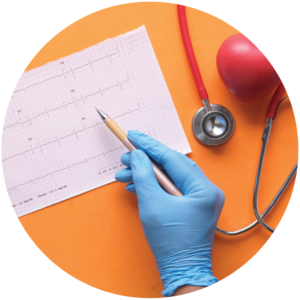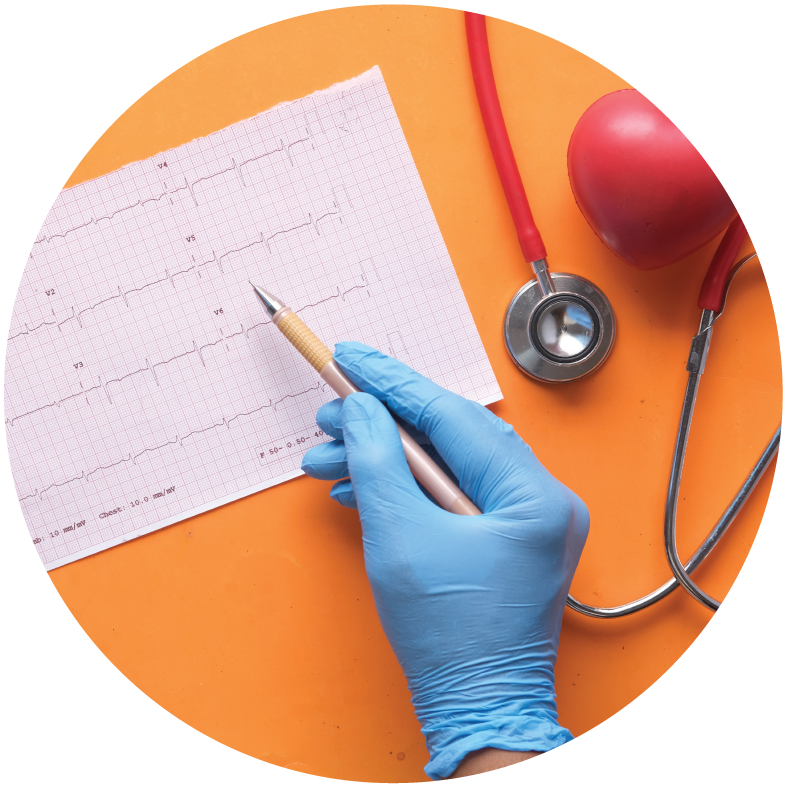Close

A little semantics
Fibrillation: rapid, irregular and unsynchronised contractions of muscle fibres.
Auricular: refers to the atrium of the heart, one of the heart chambers that pumps blood to the ventricle.
The heart contracts an average of 70 times per minute at rest to circulate blood. The heart rhythm, when normal, should be regular. In the case of atrial fibrillation, the heart goes into overdrive and starts beating completely irregularly.
Over the age of 40, the probability of developing atrial fibrillation is 1 in 4. Without adequate treatment, the risk of stroke is increased (up to 5 times).
1/3 of patients feel nothing 2/3
complain of :
As a rule, we don’t feel our heartbeat unless we are under stress or making an intense effort.
A rhythm is regular if it beats like the ticking of a clock with a frequency of 50 to 100/minute.
If it is irregular or beyond the 50/100 limits, you should be diagnosed by your GP.
